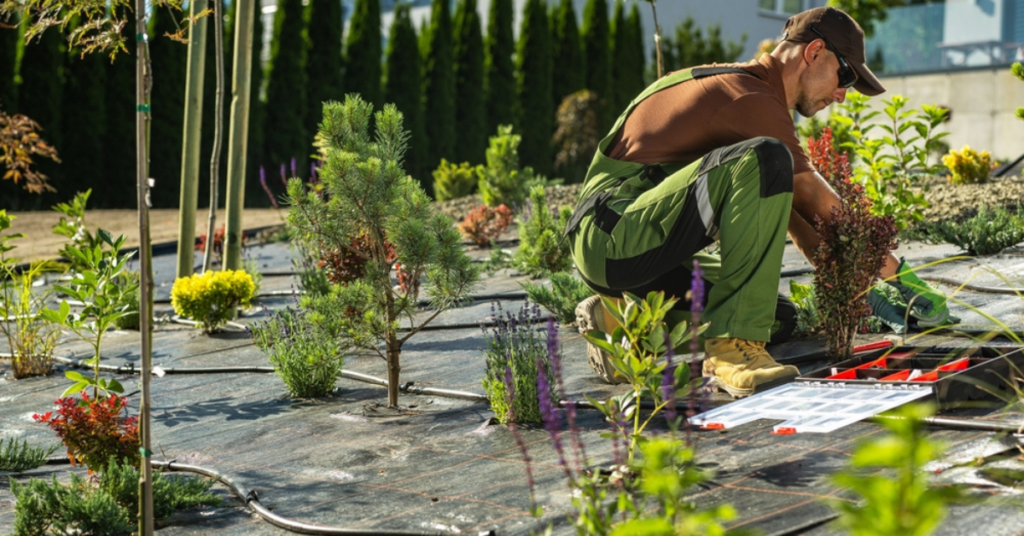Both companies and households should consider safeguarding their irrigation systems against the damaging impacts of cold weather as winter draws near. An irrigation contractor is the best person to ask whether your system is prepared for cold weather. They can assist you in getting your system ready for spring so it stays operational.
Learn how to winterize your irrigation system and get contractor-approved advice on keeping your landscape looking its best throughout the winter.
Why Winterization Matters for Your Irrigation System
Any water still in your spray heads, pipes, or valves can freeze when it gets below freezing. The pressure of the expanding water puts a lot of stress on these parts and can lead to cracks, leaks, or even system failure. Not only does a broken sprinkler system cost a lot to fix, but it can also stop watering your plants when you need it to start up again in the spring.
This is where a skilled watering expert comes in handy. They can help you figure out how to prepare your gardening for winter in a way that saves you money and keeps your investments safe. We’ll discuss how an irrigation provider does winterization and why you shouldn’t skip this step.
Assessing Your Irrigation System’s Readiness for Winter
A complete inspection is the first thing you should do to prepare your watering system for winter. An irrigation expert will usually start by looking at the parts of your system, such as:
-
Pipes and Valves:
These are the ones that could freeze the most. Contractors ensure all links are tight and look for cracks or leaks.
-
Sprinkler Heads:
These are more likely to freeze because they are usually above ground. Someone from the company will check each head to ensure it retracts appropriately and is trash-free.
-
Controllers and Timers:
It’s crucial to modify the controls and timers for winter circumstances. A contractor can suggest configuring these devices for little usage or turning them off for the season.
This preliminary examination is essential to ascertain the precise winterization procedures your system requires. Even while you could do some of these inspections yourself, a trained irrigation professional is better equipped to spot concealed problems that, if ignored, might need expensive repairs.
Essential Winterization Steps an Irrigation Contractor Will Perform
Winterizing an irrigation system involves many crucial stages, and a skilled irrigation contractor adheres to a tried-and-true procedure to avoid freezing damage. This is how that procedure usually goes:
1. Shutting Off the Water Supply
Turning off the water supply is the first step in winterizing an irrigation system. This might include modifying the backflow preventer or shutting off the irrigation system’s main valve. By turning off the water supply, your contractor ensures no water gets into the pipes in the winter.
2. Draining the System
Draining any leftover water from the system comes next after turning off the water. There are many methods for doing this, and the one you choose will often rely on how your irrigation system is configured:
-
Manual Drain:
Your irrigation contractor will unlock any manual drain valves on your system so that water may go. This method is simple yet efficient for clearing the system.
-
Automatic Drain:
Automatic drain valves in some irrigation systems open when the water pressure falls. Although less work is needed with these systems, your contractor will ensure that every part is drained.
-
Blowout Method:
The blowout approach is often required for systems that cannot be emptied by hand. This entails forcing water out of the sprinkler heads and pipelines using an air compressor. This technique works well but needs care and experience, so it’s best to leave it to a qualified irrigation contractor.
3. Insulating Exposed Components
After emptying the system, your contractor will insulate any exposed pipes, valves, and backflow preventers. Insulation tape or foam pipe covers are examples of cold-weather insulation materials that may assist in shielding these parts from freezing temperatures. A contractor understands where to install insulation for optimal protection, ensuring no exposed area is left open to the elements.
4. Preparing the Controller or Timer
A contractor will either put your irrigation system on “rain mode” or “off-season” or turn it off for the winter if it has a controller or timer. By doing this, the system is kept from operating unintentionally, which might result in energy loss and even damage if the pipes aren’t properly drained. You can prevent programming problems and ensure the system stays off until required by having an irrigation professional adjust the controller.
Key Benefits of Hiring an Irrigation Contractor for Winterization
Even while some homeowners may attempt to winterize their irrigation systems manually, there are several benefits to working with an irrigation contractor:
1. Expertise and Precision
Years of expertise are brought to the table by irrigation contractors. They are aware of the particular requirements of various commercial or domestic systems. You get accurate winterization from a contractor customized to your system’s requirements.
2. Equipment and Safety
Winterizing an irrigation system requires specific tools and safety measures, especially when using the blowout approach. If done incorrectly, blowing away water with an air compressor may be dangerous since high air pressure can harm sprinkler heads and pipelines. An irrigation professional may guarantee a safe, damage-free blowout using the proper pressure settings and practices.
3. Time Savings
It may take a lot of effort to prepare an irrigation system for winter, mainly if this is your first time. You may save time and lessen the stress of winter-related repairs by hiring an irrigation specialist to manage the whole process effectively.
DIY vs. Professional Winterization: What’s the Best Option?
Please consider the intricacy of your system and the possible consequences of incorrect winterization while choosing between doing it yourself and hiring an irrigation professional. Larger or more complicated systems, typical in commercial environments, are better left to a contractor, even if simpler systems could be workable with a do-it-yourself approach. Costly damage that often exceeds the cost of employing a professional may be avoided thanks to the contractor’s experience.
Additional Winter Maintenance Tips
In addition to winterization, many upkeep activities may help safeguard your landscape and irrigation system over the winter:
-
Mulch Around Sprinkler Heads and Pipes:
Additional insulation against freezing temperatures may be achieved by spreading mulch over exposed locations.
-
Inspect and Adjust Landscaping:
Make sure there is no obstruction in the landscape around sprinkler heads. Debris or fallen leaves may harm sprinkler heads or collect water, which can cause freezing problems.
-
Monitor System Monthly:
Consider doing a regular checkup to ensure your irrigation system is in excellent shape even after winterizing, particularly during milder winter months.
-
Getting Ready for Spring Start-Up
Remember that appropriate start-up in the spring is just as vital as winterizing your system for safety. You may arrange for an irrigation professional to do spring start-up services in addition to winterization. They’ll see that your system is securely reactivated, checked for winter-related problems, and tuned for peak efficiency.
Common Mistakes to Avoid in Winterizing an Irrigation System
You may prevent major landscape repairs and disturbances by avoiding typical winterization errors. An irrigation contractor will always consider the following, and you should as well:
-
Forgetting to Drain-All Components:
Make sure your system is completely depleted. Damage may result from even a tiny quantity of trapped water.
-
Using Excessive Air Pressure:
Excessive air pressure while using an air compressor might harm sprinkler heads and pipelines. Let a professional handle this step.
-
Neglecting to Insulate Exposed Areas:
It is necessary to insulate any exposed pipes or backflow preventers. This little action now may save costly damages later.
Final Thoughts: Protect Your Investment with Expert Help
Protecting your landscape investment, avoiding expensive repairs, and guaranteeing a seamless spring start-up depends on winterizing your irrigation system. Employing an irrigation contractor gives you peace of mind, safety, and professional experience. Your irrigation system will survive the winter and be prepared to maintain a healthy and vibrant landscape come springtime with the help of skilled and appropriate winterization measures.
Speak with a reputable irrigation contractor if you need help or have questions regarding the winterization procedure. They will adjust their strategy to meet your unique requirements, guaranteeing that your irrigation system remains in top shape throughout the year.



